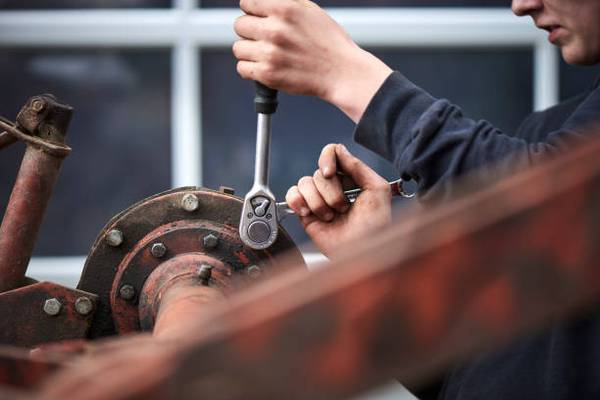Repairing And Maintaining Farm Equipment
Drafted by: vijaychourey26@gmail.com
Farming equipment is the backbone of modern agriculture, assisting farmers in efficiently tilling, planting, irrigating, harvesting, and transporting crops. These valuable machines are subject to wear and tear due to their heavy usage in rugged farm environments. Proper maintenance and timely repairs are crucial to ensuring that these tools function optimally, reducing downtime and increasing productivity on the farm.
Importance Of Farm Equipment Maintenance:
Maintaining farm equipment is essential for several reasons. Firstly, regular maintenance helps identify potential issues before they become major problems, reducing the risk of costly breakdowns during critical periods. Secondly, well-maintained machinery operates more efficiently, resulting in fuel and time savings for farmers. Lastly, ensuring equipment is in top condition contributes to the overall safety of farm operations.
Common Farm Equipment Problems:
Tractor Issues: Tractors are the workhorses of the farm, and problems with their engines, transmissions, or hydraulics can significantly impact farm operations.
Irrigation System Malfunctions: Faulty irrigation systems can lead to uneven watering, affecting crop yield and quality.
Harvesting Equipment Troubles: Harvesters with worn-out blades or malfunctioning mechanisms may cause crop damage or incomplete harvesting.
Regular Maintenance Practices:
Daily Checks: Before starting each workday, inspect equipment for signs of wear, leaks, or any anomalies.
Seasonal Maintenance: Conduct more comprehensive checks and servicing at the end of each season.
Lubrication and Cleaning: Regularly lubricate moving parts and clean debris to prevent premature wear and improve performance.
Diy Maintenance Tips:
Farmers can undertake some maintenance tasks themselves, saving time and money. Here are some DIY tips:
Changing Filters and Fluids: Regularly change filters and fluids according to the manufacturer's recommendations.
Sharpening Blades: Keep blades sharp for efficient cutting and minimal stress on the machinery.
Belt and Chain Adjustments: Ensure belts and chains are appropriately tensioned for optimal operation.
Safety Measures During Repairs:
Proper Tools and Equipment: Use the right tools for the job and follow safety guidelines while handling machinery.
Isolating the Machinery: Isolate the equipment from power sources before conducting any repairs.
Following Manufacturer's Guidelines: Adhere to the manufacturer's instructions for repairs and maintenance.
Hiring Professional Repair Services:
For complex repairs and maintenance tasks, hiring professional technicians is essential:
Benefits of Professional Assistance: Professional repair services ensure accurate diagnosis and expert repairs.
Finding Reliable Technicians: Research and choose reputable repair service providers with experience in farm equipment.
Service Contracts: Consider service contracts for routine maintenance and quick assistance in emergencies.
Upgrading and Replacement Considerations:
As equipment ages, farmers should evaluate whether to upgrade or replace it:
Evaluating Equipment Age and Condition: Assess the condition of the equipment and evaluate its efficiency compared to newer models.
Upgrading Technology for Efficiency: Consider upgrading to newer models with advanced technology for improved efficiency.
Budgeting for Replacement: Plan ahead for equipment replacement by budgeting and exploring financing options.
Preventive Measures to Extend Equipment Life:
To extend the life of farm equipment, consider preventive measures:
Proper Storage: Store equipment in a clean, dry, and secure environment when not in use.
Training Staff for Care: Train farm staff in equipment care and maintenance procedures.
Monitoring Performance Metrics: Keep track of equipment performance to detect any deviations promptly.





